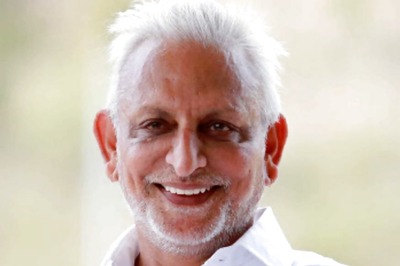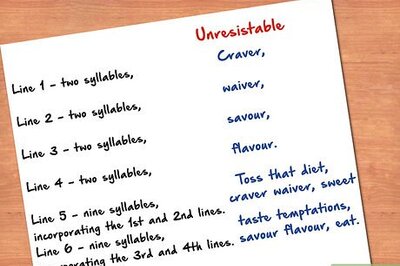
views
Kolkata: Making an “appeal” to Prime Minister Narendra Modi to engage in an open debate with an opposition leader ahead of the general elections, Trinamool Congress supremo Mamata Banerjee on Wednesday promised to launch a high-level judicial investigation into the government’s decision to ban high-value currency notes if the Opposition came to power at the Centre.
On November 8, 2016, Modi had announced the withdrawal of old Rs 500 and Rs 1,000 notes.
Banerjee made the appeal while releasing the party manifesto at her Kalighat residence in south Kolkata.
“The PM has never faced the press, never taken any direct questions from them. Let him sit for an open debate with an opposition leader, chosen by the opposition parties, before the elections. We can ask questions and seek clarifications,” said Banerjee. “He could also choose me for that job. But I know he won’t because I am a bad person in his book.”
Banerjee clarified that this was merely an “appeal” and not a challenge.
The Trinamool manifesto promised a slew of other measures to counter the policy moves made by the BJP-led central government in the past five years. These include reviewing the implementation of the Goods and Services Tax (GST) and reviving the Planning Commission in a new avatar while doing away with the Niti Aayog.
The West Bengal chief minister further inquired why the demonetization exercise was carried out and to serve whose interests. “We will initiate an inquiry under a former judge of the Supreme Court,” she added, outlining the priority areas of the new government if it came to power.
Attacking the Niti Aayog, Banerjee said the way it functioned would destroy the country’s federal structure. “The Planning Commission was Subhas Chandra Bose’s brainchild and was replaced overnight by the Niti Aayog in a Tughlaq-style autocracy by the Modi government. The Commission used to listen to the state’s concerns. There is no such scope in the Niti Aayog,” she said. “We will bring back the Planning Commission in a manner that it can strengthen federalism.”
Banerjee expressed criticism over the manner in which GST was rolled out. “The dual attack of demonetisation and GST crippled the Indian economy. We will have to see if GST at all serves people’s purpose anymore,” she said. “We need to review it with an experts’ committee and change the current structure of taxation, if required.”
Banerjee proposed doubling the MNREGA guaranteed work scheme to 200 days a year and doubling daily wages under the scheme from Rs 191 per day to Rs 382.
Targeted at a national electorate rather than the regional one, the manifesto speaks about unemployment, social and economic security for farmers, women’s empowerment, and filling up job vacancies reserved for Scheduled Castes, Scheduled Tribes and Other Backward Classes, including minorities.
The document provided an account of “Modi government’s failures and misrules” and called for “setting up a people’s government in Delhi”.
Banerjee asserted that she looked forward to including manifesto’s proposals in the Common Minimum Programme of the new coalition government. “My job is not to thrust my opinion on others. We just say what we have to say on behalf of our party,” she said. “The next step is the making of the Common Minimum Programme and include these national issues.”




















Comments
0 comment